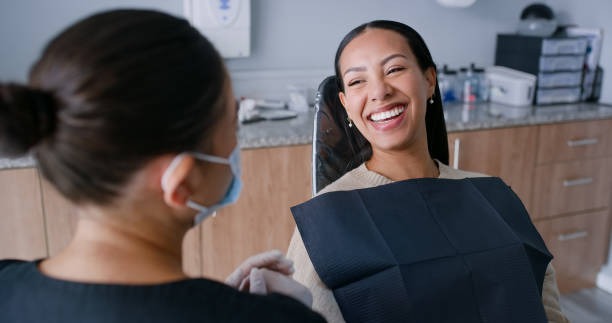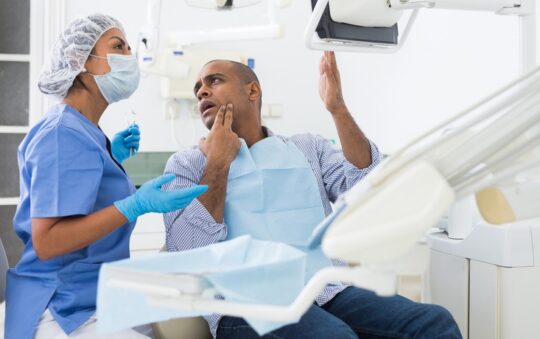Dental problems can pop up when you least expect them. Whether you’re dealing with an aching tooth while watching a late-night movie, your child accidentally chips a tooth at the playground, or you wake up to swollen gums, dental emergencies never arrive at convenient times. When panic sets in, knowing what to do and where to go can make all the difference for your comfort and peace of mind. In this article, we tackle the most frequently asked questions about emergency dental visits so you’ll know what to expect the next time you or a loved one faces a sudden dental dilemma.
What Qualifies as a Dental Emergency?
Not every dental problem is an emergency, but some situations require immediate attention from a dental professional. Here are a few examples of clear dental emergencies:
-
Severe toothache or throbbing pain that doesn’t improve with home remedies
-
Knocked-out, broken, or chipped tooth (especially if the pulp is exposed)
-
Excessive bleeding from the mouth after an accident or dental procedure
-
Swelling of the jaw, gums, or face, especially if accompanied by a fever
-
Lost fillings, crowns, or dental appliances causing pain or pressure
-
Persistent mouth sores and signs of infection, like pus or a foul taste
If you’re unsure, it’s always best to call your dentist or a dental emergency line for advice. The faster you act, the better your chances of relieving pain and saving your teeth.
How Soon Should I See a Dentist During an Emergency?
Timing matters with dental emergencies. For issues like a knocked-out tooth, immediate care within 30–60 minutes can dramatically improve the outcome. Quick action increases the chances that a dentist can save your tooth or prevent complications such as infection. For problems involving swelling, bleeding, or potential infection, don’t wait—seek attention right away, even if you need to visit an urgent care center or emergency room first.
When Should I Go to the Emergency Room?
A dentist best handles most dental emergencies, but some situations call for a trip to the ER first:
-
Severe facial trauma or jaw injury with uncontrolled bleeding
-
Difficulty breathing or swallowing due to swelling
-
High fever, chills, or confusion along with dental pain (signs of systemic infection)
Once any immediate medical threats are managed, you’ll still need to follow up with a dental professional for further treatment. If you’re searching for routine care in your area, you might consider looking for “teeth cleaning near me” to maintain your oral health and prevent future issues.
What Can I Do at Home Until I Reach the Dentist?
When dental trouble arises, a little home care can reduce pain and prevent further damage. Here are several steps you should follow while you arrange an emergency appointment:
-
Knocked-out tooth: Pick up the tooth by the crown (not the root), gently rinse it off, and try to place it back in the socket. If this isn’t possible, keep it moist in milk or your saliva until you see the dentist.
-
Broken or chipped tooth: Rinse your mouth with warm water, apply a cold compress for swelling, and save any pieces you find.
-
Pain or swelling: Rinse with salt water, take over-the-counter painkillers (not aspirin on the gum), and apply a cool pack to the outside of your cheek.
-
Lost filling or crown: Cover the exposed area with dental cement or sugar-free gum as a temporary fix.
-
Bleeding: Use gauze and gentle pressure to control bleeding; seek help if it doesn’t stop within 15–20 minutes.
Will the Emergency Dentist Perform the Permanent Fix?
In some cases, yes! Emergency dentists usually focus on addressing immediate symptoms—pain relief, infection control, and stabilizing injuries. This might involve procedures like draining an abscess, repairing a broken tooth with a temporary filling, or reattaching a crown. However, more complex or long-term restoration (like root canals, crowns, or implants) may require follow-up appointments. Your dentist will create a personalized treatment plan based on what’s discovered during your emergency visit.
Can I See My Regular Dentist for Emergencies?
Many general and family dentists offer emergency hours or next-day appointments for their patients, so it’s always worth calling your usual dental office first. If your regular dentist doesn’t handle after-hours emergencies, they can typically refer you to a trusted colleague or a nearby urgent dental clinic. Being established with a practice can be a major advantage, especially when you’re in pain and need help fast.
How Do Emergency Dental Clinics Work?
Emergency dental clinics are often open late nights, weekends, and holidays to serve people in distress. Most operate as walk-in centers, but calling ahead speeds up the process. When you arrive:
-
You’ll complete a brief registration form about your dental medical history.
-
The dentist quickly assesses your urgent concern, often with X-rays or an exam.
-
Initial treatment is provided to relieve pain, stop bleeding, or stabilize the problem.
-
You’ll receive aftercare instructions and, if needed, a referral for follow-up treatment.
Insurance and payments can typically be arranged at the time of care. Bring your dental insurance card, photo ID, and information about any medications you’re taking.
Is It Expensive to Get Emergency Dental Treatment?
The cost of an emergency dental visit varies based on your needs and location. Minor repairs, exams, or prescription medications may be relatively affordable, while major interventions (like root canals or extractions) are pricier. Most dental insurance covers some urgent care, but you might need to pay a small deductible or co-pay. If you don’t have insurance, many clinics offer payment plans or sliding scales so you can still get the relief you need.
Simple Tips to Reduce Costs:
-
Ask for a price estimate over the phone for common procedures
-
Bring proof of insurance and identification
-
Inquire about financial assistance or deferred payment programs
-
Consider urgent care dental centers, which may have lower prices than medical ERs
How Can I Prevent Dental Emergencies?
While some dental accidents are unavoidable, you can reduce your risk with a few easy habits:
-
See your dentist twice a year for checkups and cleanings
-
Brush and floss daily to keep your gums and teeth healthy
-
Wear a mouthguard for contact sports
-
Avoid very sticky, hard, or crunchy foods if you’ve had dental work
-
Never use your teeth to open bottles or packages
-
If you grind your teeth, ask about night guards
One of the most overlooked ways to avoid emergency dental offices is to maintain preventive care. These regular visits not only let your dentist catch issues early but also help spot warning signs before they turn into full-fledged emergencies. Some practices, such as Shelby dental care, highlight preventive appointments as essential for managing long-term dental health.
How Do I Handle Tooth Pain At Night or While Traveling?
There’s nothing worse than being far from home or up at midnight when a toothache starts pounding. If you’re traveling or can’t get to your dentist immediately, follow these steps:
-
Rinse with warm, salty water to reduce bacteria and calm swollen tissues
-
Apply a cold compress to your cheek to minimize swelling
-
Take non-aspirin pain relievers for comfort
-
Avoid very hot, cold, or sugary foods and drinks
-
If a filling falls out, cover the area with orthodontic wax until you get professional help
Can Kids and Teens Have Dental Emergencies?
Absolutely! Kids are especially prone to dental injuries from play, falls, or sports. Common emergencies include knocked-out teeth, broken braces, or sudden severe pain. Stay calm—save any pieces of tooth, stop bleeding with gentle pressure, and call your pediatric or family dentist for guidance. In case of orthodontic emergencies like broken wires, use orthodontic wax and book an emergency dental visit if pain or soft tissue injury occurs.
Should I Stop Eating or Drinking After a Dental Injury?
After major dental trauma or surgery, your dentist may suggest you avoid certain foods and beverages temporarily. For example, after a tooth extraction or oral surgery, people are often told not to consume dairy. This common post-op advice, such as why no dairy after tooth extraction, is typically given to prevent bacteria in dairy products from interfering with the healing process. Always follow your dentist’s guidance about what’s safe to eat or drink post-treatment, as these precautions can speed recovery and lower infection risk.
Can I Prevent Infections After a Dental Emergency?
Aftercare for a broken, chipped, or knocked-out tooth—or any event that exposes the inside of your tooth or gum tissue—it’s essential to keep the area clean and free from debris. Here’s how:
-
Rinse gently with salt water after meals to reduce bacteria
-
Take all prescribed medications exactly as directed
-
Avoid using straws or forceful rinsing, which can delay healing
-
Monitor for increasing pain, swelling, and fever, and report concerns promptly
Good hygiene and following your dentist’s aftercare instructions can dramatically lower your chances of infection, even after a major dental mishap.
Wrapping Up
Dental emergencies are stressful and often happen when you least expect them, but with the right information and a calm approach, you can survive these crises and come out smiling. By knowing what qualifies as an emergency, acting quickly, and maintaining excellent daily oral care, you’ll lower your risk of unexpected and painful dental issues. Always keep your dentist’s number handy, and don’t hesitate to prioritize your oral health, both in everyday life and when the unexpected strikes.





